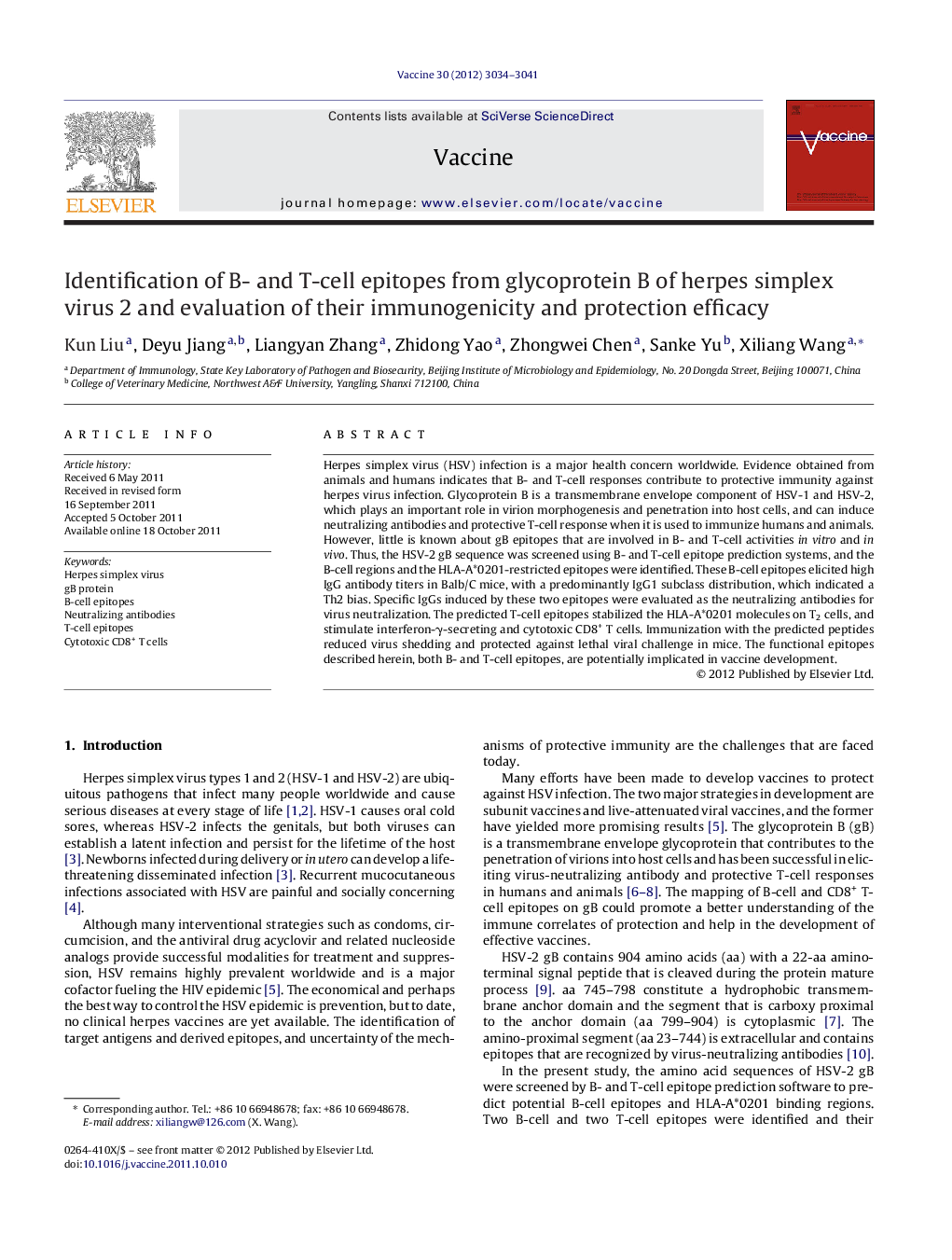| Article ID | Journal | Published Year | Pages | File Type |
|---|---|---|---|---|
| 10969642 | Vaccine | 2012 | 8 Pages |
Abstract
Herpes simplex virus (HSV) infection is a major health concern worldwide. Evidence obtained from animals and humans indicates that B- and T-cell responses contribute to protective immunity against herpes virus infection. Glycoprotein B is a transmembrane envelope component of HSV-1 and HSV-2, which plays an important role in virion morphogenesis and penetration into host cells, and can induce neutralizing antibodies and protective T-cell response when it is used to immunize humans and animals. However, little is known about gB epitopes that are involved in B- and T-cell activities in vitro and in vivo. Thus, the HSV-2 gB sequence was screened using B- and T-cell epitope prediction systems, and the B-cell regions and the HLA-A*0201-restricted epitopes were identified. These B-cell epitopes elicited high IgG antibody titers in Balb/C mice, with a predominantly IgG1 subclass distribution, which indicated a Th2 bias. Specific IgGs induced by these two epitopes were evaluated as the neutralizing antibodies for virus neutralization. The predicted T-cell epitopes stabilized the HLA-A*0201 molecules on T2 cells, and stimulate interferon-γ-secreting and cytotoxic CD8+ T cells. Immunization with the predicted peptides reduced virus shedding and protected against lethal viral challenge in mice. The functional epitopes described herein, both B- and T-cell epitopes, are potentially implicated in vaccine development.
Related Topics
Life Sciences
Immunology and Microbiology
Immunology
Authors
Kun Liu, Deyu Jiang, Liangyan Zhang, Zhidong Yao, Zhongwei Chen, Sanke Yu, Xiliang Wang,
